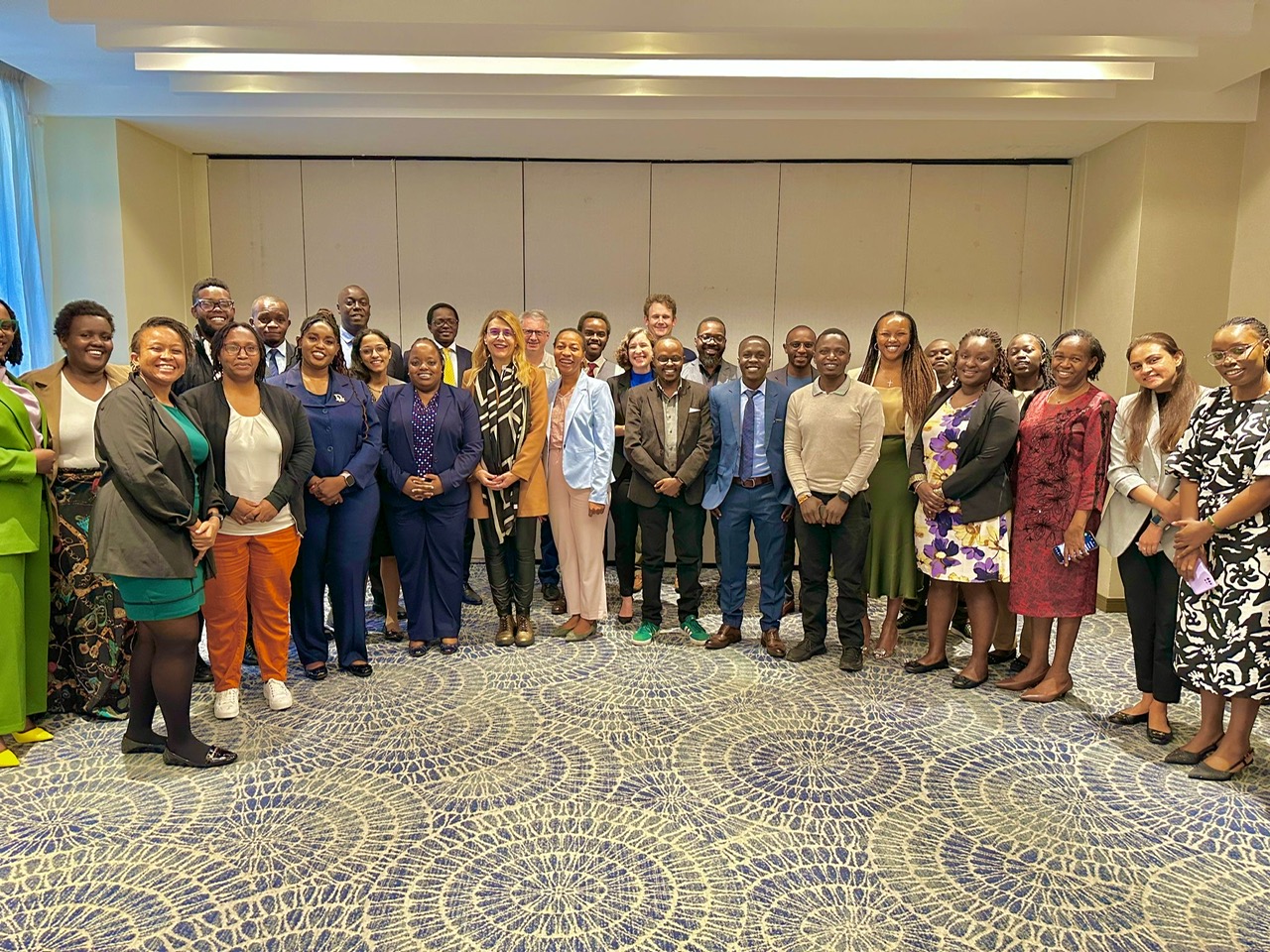We are excited to announce that Brink is now part of Africa Practice. Learn more
African Startups: Driving Innovation and Economic Growth

Download the full framework
African startups are transforming the continent. The AU’s Startup Policy framework, supported by Google, addresses challenges & promotes inclusivity, and provides a roadmap for member states to create policies that empower the next generation of innovators.
From Ghana to Nigeria, a wave of innovation is sweeping across Africa. In Accra, Oze, a groundbreaking fintech startup, is empowering small and medium-sized businesses with financial tools they’ve long needed – loans, payment processing, and loan management solutions. By partnering with established financial institutions, Oze is levelling the playing field, giving businesses of all sizes a chance to thrive.
Meanwhile, in Lagos, Healthtracka is transforming the healthcare landscape. No longer do Nigerians need to endure long waits and crowded clinics for essential lab tests. With Healthtracka, a healthcare professional comes to your home, collects samples, and delivers fast, affordable results. It’s healthcare on your terms, making wellness accessible to all.
These are just two examples of how African startups are not just dreaming big, but actively shaping a brighter future for the continent. Imagine the possibilities if we could replicate this success across every sector, on the continent. To achieve this vision of a thriving startup ecosystem, we must address the challenges that currently hinder growth. The AU’s recently launched Startup Policy Framework and Model Law, unveiled at the Google Ghana Research Center on July 20th, represents a strategic response to these challenges, aiming to cultivate an environment where startups can flourish.
Nurturing Africa’s Startup Ecosystem
Despite a funding dip in 2023, African startups have shown remarkable resilience, with year-on-year funding growth since 2019 and projections reaching $10 billion by 2056. This isn’t just about profits; It’s about people – individuals with dreams and the drive to turn them into reality. It’s about creating jobs so that Africans across the continent have the opportunity to earn a living in dignity. This growth echoes the very essence of Africa’s Agenda 2063, a vision of a prosperous and united Africa, powered by its own citizens.
While this paints an encouraging picture, African startups still face obstacles. Complex local and cross-border regulations, coupled with limited funding, often constrain their ability to invest in research and development or scale their operations. Notably, while global venture capital funding reached record highs in 2021 and 2022, Africa received less than 3% of these flows. This disparity underscores the urgent need to diversify capital sources and ensure investment opportunities reach all Member States.
Beyond funding, other challenges loom. The landscape of data protection is still evolving, skilled talent can be scarce, and inconsistent intellectual property enforcement coupled with fragmented markets create additional complexities.
The Startup Policy Framework
The AU’s Startup Policy Framework is a timely solution that addresses key challenges. It provides guiding principles, an innovative approach, recommendations, and model clauses to guide Member States in creating their own startup policies. The framework encourages unconventional policy-making, like mutual recognition agreements to streamline product/service recognition across borders, aiding startups’ pan-African growth. It also acknowledges the potential of Cloud and AI technologies to accelerate productivity, proposing the promotion of cloud technology, AI research funding, risk-based governance arrangements, and prioritising opportunities to harness these technologies in ways that are transparent and fair. Google’s AI Sprinters report aptly captures the transformative power of AI in emerging markets and how they can reap substantial benefits from strategically adopting AI technologies across various sectors.
Empowering Women and Youth
Inclusivity is a core principle of the framework, placing startups led by women and youth, who represent the majority of Africa’s population, at the heart of the AU’s vision for development. However, a stark funding gap exists: a report revealed that only 9% of venture-funded companies had all-female founding teams, receiving a mere 3% of the total funding. This framework, combined with the AU’s broader efforts, aims to address this disparity and create a more equitable startup landscape.
While recognizing that there’s no one-size-fits-all solution, the framework provides valuable principles and emphasises the urgent need for concrete policies, laws, and investments at both national and pan-African levels to support startups, particularly those led by women and youth.
Everyone has a part to play
The private sector is a vital player in this ecosystem. Google, alongside other partners, proudly supports the African Union’s Startup Policy Framework, demonstrating our commitment to fostering a thriving startup environment. Initiatives like the Google for Startup Accelerator for Africa, the Hustle Academy that has empowered over 10,000 graduates to date, and Google’s USD 50 million Africa Investment Fund underscore the private sector’s dedication to supporting African startups.
However, achieving a truly prosperous startup ecosystem demands collaboration. Governments, innovators, and civil society must work together to implement this framework and tackle real-world challenges. By doing so, we invest in Africa’s economic future and empower its next generation of leaders.
A Call to Action: Implementing the Startup Policy Framework
The AU Startup Policy Framework and Model Law marks a significant milestone on the path to unlocking Africa’s startup potential. Member States have a critical opportunity to adopt its provisions and follow the roadmap to implementation to create a more supportive environment that accelerates the continent’s development. Member States will need to commission their own needs assessments and support implementation of a version of the Startup Policy Framework that works for their specific local contexts.
As stakeholders, we must all take decisive action to support this journey. Together, we can create “The Africa We Want” — a prosperous, inclusive, and innovative, “startup” continent, driven by its people.
This article was republished with permission from Google. The original version can be found here.
Related articles
Proud to be BCorp. We are part of the global movement for an inclusive, equitable, and regenerative economic system. Learn more


